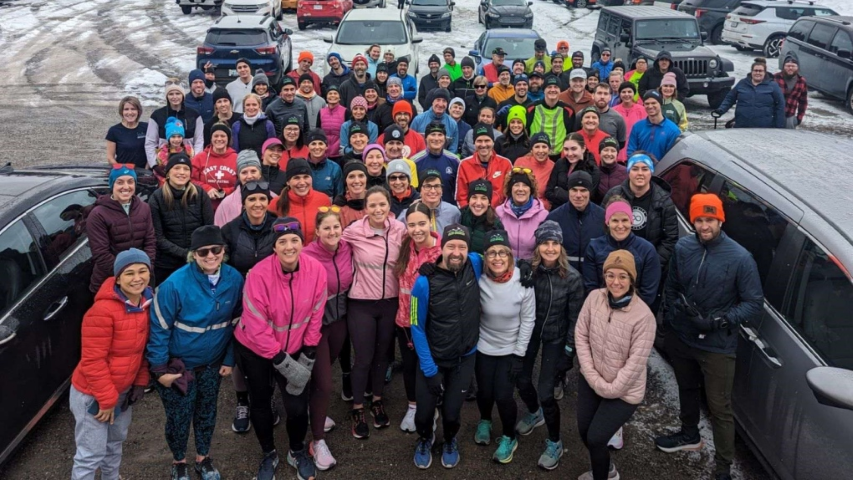
Here is an image of individuals who took part in the 2024 Resolution Run organized by the Cape Breton Road Runners. The photo was captured by Maire Neville.
As the new year dawned, approximately 100 individuals embraced the opportunity to kick off 2024 on a positive note by participating in the Cape Breton Road Runners' annual Resolution Run on Monday.
Among the participants, Sydney-based runner Heather Malcolm shared her aspirations for the coming year. Expressing her determination, Malcolm revealed, "My primary resolution is to run a full marathon in May for the Fredericton Marathon." Notably, this would mark her inaugural marathon, although Malcolm's resolutions extend beyond the realm of running to encompass broader life goals. She added, "I aim to foster a healthier relationship with food and spend more time outdoors, connecting with nature by going barefoot on the ground."
For Malcolm and many others at the Sydney Resolution Run, the event offered a chance to prioritize outdoor activities and social interactions, steering clear of a prevalent modern indulgence—excessive use of digital devices. Malcolm acknowledged her reliance on social media and shared her commitment to change this habit, stating, "I tend to use social media way too much, so I'm trying to replace that with reading and have at least an hour of no screen time before bed."
Debbie Howie, a seasoned Cape Breton runner entering her mid-60s, encapsulated her resolution with a witty remark, "It's to keep moving, because motion is lotion. At my age — I'm 65 — it's just get up every day and move every day."
Contrary to the diverse personal resolutions, a survey by Forbes revealed that the most common New Year's resolutions for the year include a focus on enhanced fitness, improved financial well-being, and better mental health. Despite these well-intentioned goals, experts caution against falling into the classic trap of attempting too much too quickly.
Ahuva Magder Hershkop, a registered dietitian and burnout coach, cautioned against excessive zeal, emphasizing the importance of realistic planning. She observed, "Some people go to the gym for six hours one day and never end up there again for the next six months." Hershkop stressed the need for not only setting an ultimate objective but also formulating a practical plan to achieve it.
To enhance the likelihood of resolutions sticking, Hershkop advised individuals to begin with what she terms the 'smallest achievable goal.' This involves starting with a small, manageable task that can be consistently pursued, gradually paving the way toward the desired end goal.
As individuals strive to navigate the challenges of the new year and work towards their resolutions, the emphasis on realistic planning and gradual progress emerges as a key theme, encouraging a sustainable approach to personal growth and well-being.















